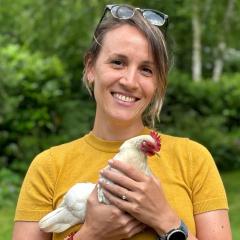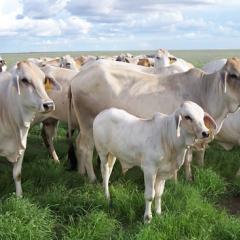Leading tropical livestock research and development
The Centre for Animal Science delivers world-class research to Australia’s animal industries. We aim to increase on-farm productivity and sustainability in the northern Australian beef industry and across the livestock industries, including pigs and poultry.
We have major programs and capability in genetics and genomics; breeding and reproductive capability of northern Australian cattle breeds; welfare and ethics; pest and disease control through improved detection; monitoring and vaccine technologies; nutrition; metabolism and growth.
-
-
Egg injection leads to healthier chicks
12 May 2025 -
Igniting the future in agriculture
20 March 2025
-
Calf Alive 2025
4 Nov 2025–6 Nov 2025
Research Highlights
Calf Alive is focused on improving calf survival and reproductive performance in northern Australian beef herds, with a particular emphasis on nutrition and environmental stress. The project, led by Associate Professor Luis Prada e Silva, involves testing nutritional strategies, monitoring environmental stress, and identifying efficient breeders. It also aims to assess the impact of these interventions on business productivity and sustainability.
The Sustainable Precision Feeding in Broiler Chickens project is a world-first collaboration led by UQ and funded by AgriFutures Australia. It brings together global experts to improve chicken meat production through advanced nutrition, gut health, and sustainability. The project supports industry capacity through training, international collaboration, and research focused on reducing reliance on soybean and antibiotics while improving welfare and environmental outcomes.
Research Impact
Case studies
The impacts of a venereal disease that causes cattle infertility and costs the industry hundreds of millions of dollars could be mitigated by an experimental vaccine created at The University of Queensland.
University of Queensland researchers are setting the agenda for breeding high yield, heat tolerant and disease-resistant crops and low emission cattle with excellent feed conversion efficiency as they search for the ultimate genotype.
A chemical-free method of controlling flystrike in sheep is a step closer, according to University of Queensland research.






